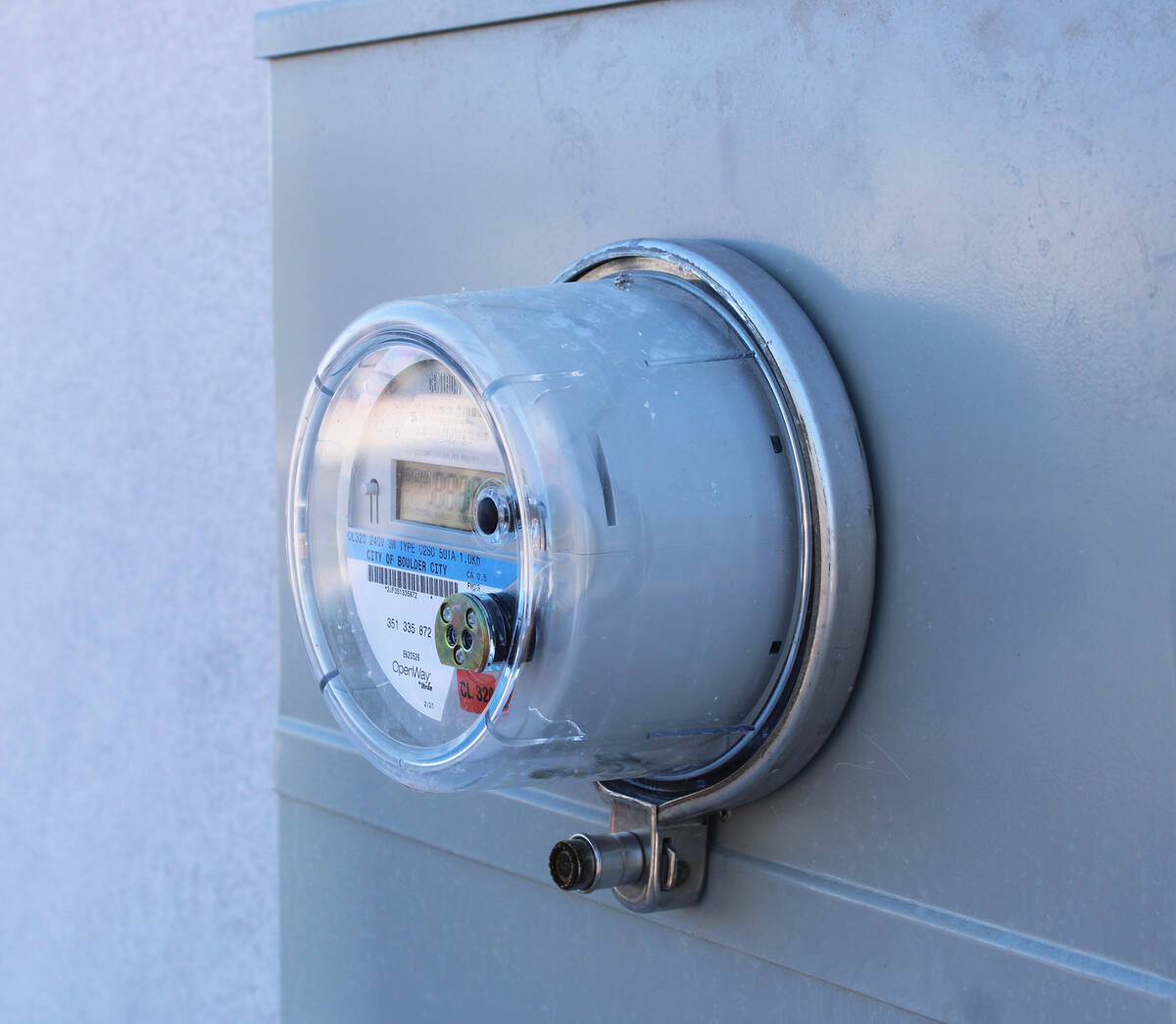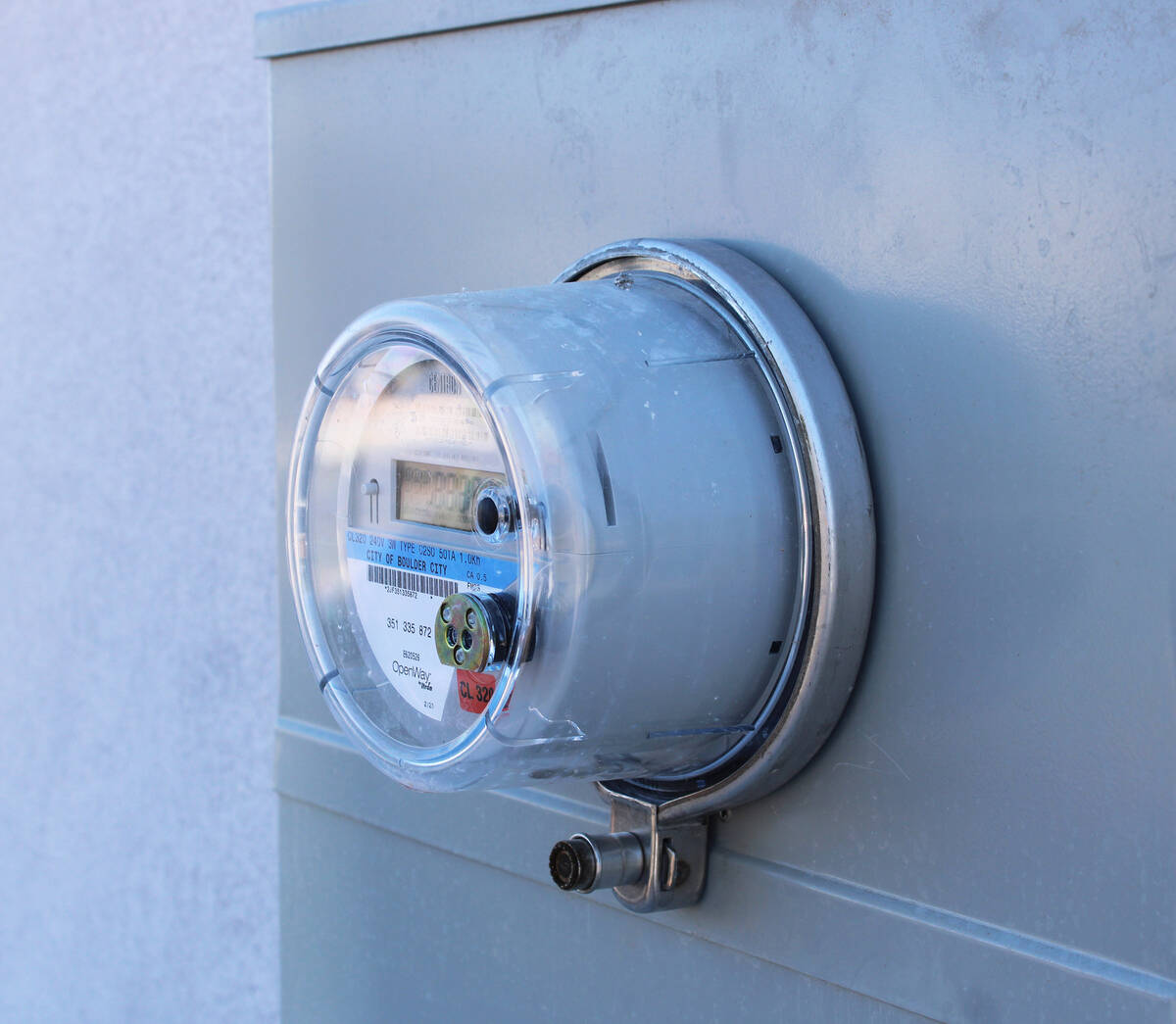Council decision means energy rates can’t go down
Ah, the difference a single word can make.
The city council voted unanimously to change one word in the resolution that dictates how utility rates are set. And that one word appears to mean that while rates can go up when the cost of energy increases, it can’t go down if the cost decreases.
The proposal put forward was to repeal Resolution 7666, which was passed just over a year ago and to replace it with a new resolution that changed one word. The part of the old resolution that dealt with the actual cost of energy (the Energy Charge) part of users’ utility bill, set a cost and noted that the cost could be adjusted to match the actual cost of energy. The resolution the council passed changes the word “adjusted” to “increased.”
Utilities Director Joe Stubitz said that the change comes as a result of advice from the Utility Advisory Committee and laid the need for the change at the feet of electrical infrastructure in Boulder City that had been neglected for many years.
“We’re in a a period of increased capital improvement,” he said. “We’re looking to transition our system voltage from 4kV to 12kV and with that comes a couple of substation rebuild projects that are significant capital investments. What we’re looking to do is we’re looking to hold the energy charge at the current rate instead of kind of shooting ourselves in the foot when we have upcoming capital improvement projects.”
George Rhee is a 30-year resident of Boulder City and a former vice-chair of the Utility Advisory Committee who was the lone speaker in the public hearing portion of the council’s action. Speaking after the meeting, he said, “It has not been made clear why the city’s cost of purchased power can only increase moving forward. This is not something you can mandate by law, the open markets decide that. If the cost of purchased power were to decrease then users would be overpaying. Would the extra money be transferred to one of the other utilities?”
The city owns all of the utilities serving BC residents and businesses except gas and all of them —water, electricity and waste management —are part of a single Enterprise Fund. This is a government budgeting strategy for dealing with activities that generate income because the city is not allowed to make a profit. So the revenue from these activities (also the municipal airport) go into a separate account and can’t be used to fund other city activities not related to the activity that raises the revenue.
In Boulder City, some of those funds are easy to understand. The Airport Fund can only be used for activities and expenses at the airport as an example. The Utility Fund is a little less clear as all of the utilities comprise one fund. So funds left over from one utility (what a private business would call profit but, remember, the city can’t make a profit) can be used for the needs of a different utility that is also part of the fund.
And that is happening right now. But not with electricity. Stubitz clarified under questioning from the council that the city’s other utilities have actually been supporting energy costs for the past several years.
The cost of electricity skyrocketed starting in 2022 as the war between Russia and Ukraine cut substantial amounts of natural gas supplies available to Europe, which sent the cost of gas around the world spiraling upward. Boulder City only gets a small portion of its electricity from generators that run on gas, but it was enough to greatly increase the overall cost of energy.
Under the now-official wording, even though gas prices are starting to moderate (which should bring down the cost of electricity), those lower prices will not be reflected in the electric bills of BC residents and businesses. But if costs go back up, then the amount charged to users can go up. It just can’t come back down.
Councilmember Sherri Jorgensen addressed the costs of upgrading infrastructure. “These substation rebuilds are many millions of dollars each and to accumulate that cash to pay for that, you know, it’s going to take a little bit of time and extra resources,” she said.
Part of the reason for these kind of machinations is the unique nature of BC’s charter, which says that the city can’t take out debt of more than $1 million without getting the approval of voters. The last time the city issued a bond was to pay for the water line that made Boulder Creek Golf Club possible.
Jorgensen alluded to that in a comment prior to the vote. “We don’t take out debt over a million and nowadays you can’t buy bananas for a million.”
















